Beyond Borders: The Stakes in Ukraine
Insights from the game theory of international conflicts
The 24th of February marked two years since Russia's invasion of Ukraine. While Western public opinion continues to largely favour assisting Ukraine in its resistance against Russia, the level of Western support has not lived up to its initial promises.1
A number of Western commentators and politicians have taken a stance against aiding Ukraine. Some of their arguments, allegedly rooted in good intentions, advocate for the West to pursue peace instead of supporting Ukraine militarily. Other arguments are more pragmatically self-centred, positing that the conflict in Eastern Europe is not worth the expense and the risks. Against these suggestions, I present here two insights from the game theory of international conflicts that underpin the case for the ongoing support of Ukraine:
Unconditional calls for peace may be well intended but they can be counterproductive. To achieve peace, one sometimes must credibly signal a resolve to fight.
Suggesting that the invasion of Ukraine is a local conflict not worth the cost is misguided. Behind local conflicts, it is often the rules of the international order that are at stake.
A paradox of conflict: to ensure peace you may need to be ready to fight
The fear that the conflict in Ukraine would lead to a nuclear conflict between the US and Russia is an understandable concern. During the Cold War, defence analysts discussed the risk of spiralling into nuclear conflict: “The conflict escalates as each party responds to the presumed provocations of the other until the spiral of events gets completely out of hand.” (Wildavsky, 1965). This apprehension was inspired by the scenario that led to World War I when the system of alliances led to a progressive escalation into military conflict after the murder of the Austrian Archduke Franz Ferdinand by a Serbian activist. Such a concern calls for caution and de-escalation.
The importance of deterrence
While the concern for a spiralling conflict is sensible, defence analysts also learned the importance of deterrence from another dynamic: the one that led to World War II. One of the key insights put forward by Thomas Schelling, the most influential game theorist of the Cold War, is that the best way to avoid conflict is to convince the opposing country that it is not in its best interest to initiate it.
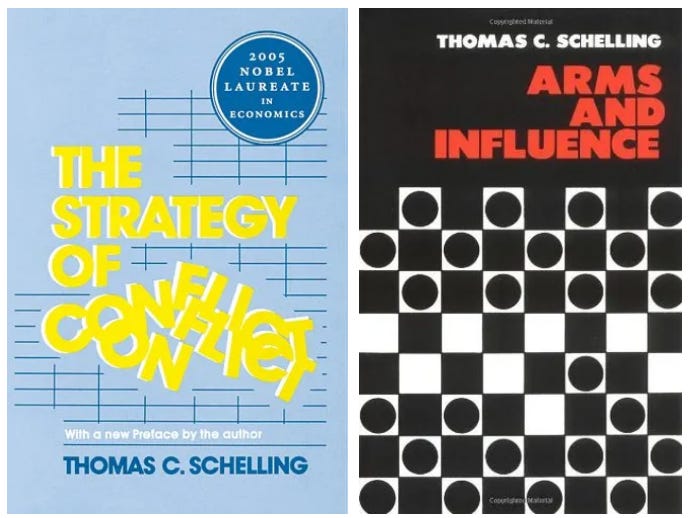
The importance of deterrence was emphasised by the failure of the policy of appeasement followed by England and France towards Hitler. A pivotal moment of this policy was the Munich Agreement in 1938, when England and France conceded to Germany's annexation of Czechoslovakia's Sudetenland, hoping to avoid war with Hitler. Far from deterring conflict, this concession only strengthened Hitler's position and emboldened him. In August 1939, he declared to his generals “Our enemies are small worms. I saw them at Munich.” (Faber, 2010).
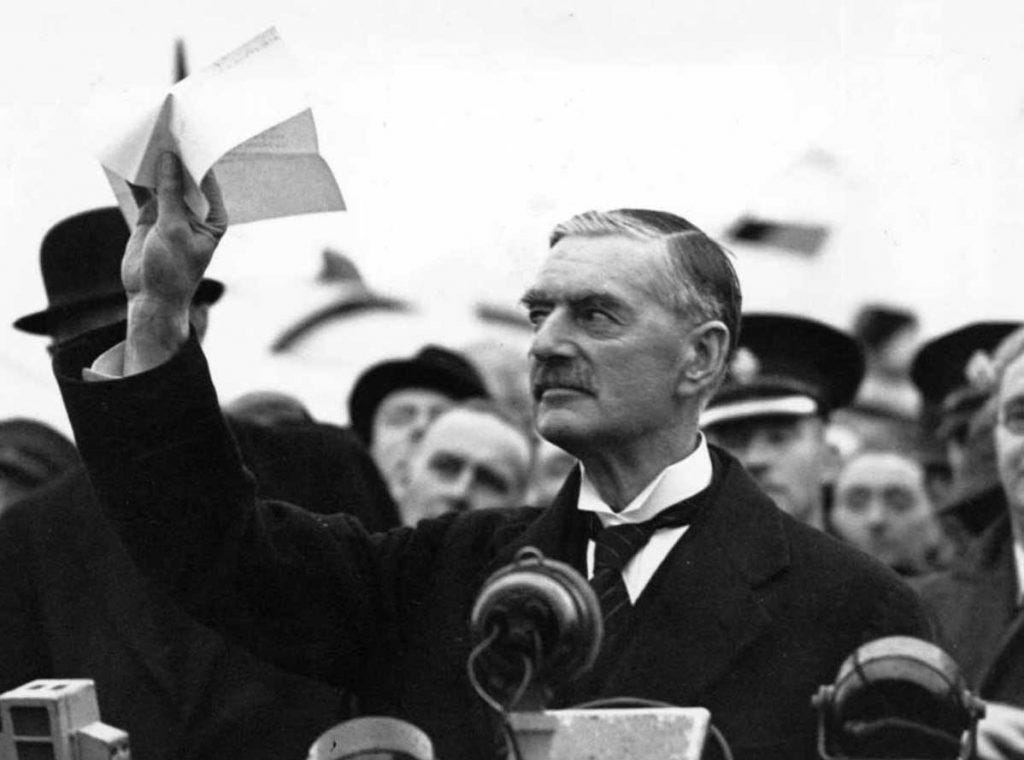
In the nuclear age, mutual deterrence “rests on the threat of pain and extinction” (Schelling, 1966). However, deterrence can fail to stop small conflicts because the cost of a large-scale retaliation may be too high to bear to sanction a small attack. A determined aggressor can therefore aim to extract small concessions or impose faits accomplis via a series of small aggressions, a strategy Schelling called salami tactics, one slice at a time. Kennedy described this tactic as nibbling away the periphery of the Free World.
Their missile power will be the shield from behind which they will slowly, but surely, advance—through Sputnik diplomacy, limited brush-fire wars, indirect non-overt aggression, intimidation and subversion, internal revolution, increased prestige or influence, and the vicious blackmail of our allies. The periphery of the Free World will slowly be nibbled away […] Each Soviet move will weaken the West; but none will seem sufficiently significant by itself to justify our initiating a nuclear war which might destroy us. - cited in Freeman and Michaels (2019)
This scenario is relevant to Putin’s Russia. It invaded Georgia in 2008 and took some of its regions, invaded and annexed Crimea in 2014, launched a military operation in South Eastern Ukraine a few months later, and a full invasion of the country in 2022.
Red lines
Schelling pointed out a simple strategy to stop such a scenario: to draw red lines and be willing to uphold them once they are drawn. Red lines can stop salami tactics by providing some indication that one step beyond that line would be a step too far. It is not because a step warrants retaliation in itself, but because a series of steps has to be stopped somewhere. A red line indicates where this series of steps won’t be tolerated further.
The mechanism of red lines might appear somewhat enigmatic. Why would an aggressor be convinced that crossing such a line would result in significantly different consequences compared to previous infractions? The answer is that red lines work to the extent that they can credibly shape the mutual expectations between the aggressor and the defender. In the words of Schelling, red lines “provide some clue for coordinating behaviour, some focal point for each person’s expectations” (Schelling, 1960). To be effective, red lines are typically drawn on salient symbolical aspects of reality—such as an international border or a specific type of weapon—to persuade an opponent that any violation here would be seen as a distinct breach, warranting retaliation.
A key requirement for a red line to work is the credibility of the resolve of the country drawing it to follow through with retaliation in the event of encroachments. This resolve is influenced by the attitudes and beliefs of the country’s population (are they willing to support economic and military costs), the political cohesion in the country (can the government of the day get the unified support from the different parties in the country to support a conflict), and the underlying geopolitical interests of the country (how much does the country’s government care about the red line it states, behind the actual words).
There is a reputational cost for a country that draws a red line and fails to act upon it if crossed. Not upholding a given red line signals a lack of resolve. In a fascinating analysis of the path to World War II, Daniel Ellsberg highlighted such a case: France and England's failure to sanction one of Hitler’s first aggressive moves, the remilitarisation of the Rhineland in 1936.
By ignoring a clear-cut and ominous violation both of the Treaty of Versailles and the Pact of Locarno, Hitler's opponents demonstrated to Europe, as Churchill puts it, that "France would not fight, and that England would hold her back even if she would." […] By their unwillingness to take a small risk early in the game, the French and English leaders ensured that they would have to face great risks later. […] The very fact that he had gambled—and won—in the Rhineland strengthened Hitler's hand in later bargaining. - Ellsberg (1959)
In the following three years, Hitler would annex or invade Austria, the Sudetenland, the Czech part of Czechoslovakia, and then half of Poland. In that perspective, adopting an overly appeasing stance might be counterproductive because it can suggest that future aggression would not be met with tough retaliation. In simpler terms, it can signal that you are a pushover and invite further aggression.

Preventing further aggression requires, therefore, to manage tensions without shying away from conflict. The 2016 book Back from the Brink: Escalation and Interstate Crisis makes the following point:2
Crisis management is as much a competition in risk taking as it is risk calibration, about knowing when to ratchet up the pressure, and when to ratchet it downwards. - Sweijs et al. (2016)
Handling nuclear threats
An important aspect of such crisis management is how to handle the threats of nuclear conflict. The economist Chris Blattman, author of the book Why We Fight (2022), explained the reputational dynamics at stake when deciding how to handle Putin’s nuclear sabre-rattling:
When Putin decides to rattle the nuclear saber, a lot of people think, ‘Oh, well, can’t risk that; we really should settle lest this escalates.’ But when you think of it in terms of signaling reputation, this is just the first of many rivalries. […] And so the reputational dynamic actually increases our incentives to draw that line in the sand and say, ‘No, we’re going to show we’re willing to pay a great cost to ensure that Putin’s saber-rattling strategy will not pay off.’ - Chris Blattman, February 2023
Nuclear threats are worrisome, yet they can be brandished or alluded to cheaply, often without a real intent to follow through.3 Historical evidence from the Cold War underscores that, considering the catastrophic costs of nuclear war, political leaders have generally been reluctant to initiate one (Freeman and Michael, 2019).
In that perspective, the war games conducted by Thomas Schelling and Alan Ferguson in 1961 at the RAND Corporation deserve to be more widely known. They were designed to explore scenarios in the case of a Berlin crisis. Alan Ferguson described these games as “intended to be intensely realistic […] The people at those sessions felt that there was a real likelihood that they would face decisions somewhat like the ones they had to work out in the games.” The result surprised the analysts: “the single most striking result was our inability to get a fight started […] Each side overestimated the impressions that its own moves would make on the other.”
Notably, Putin’s behaviour indicates that he does not want a nuclear war. Pekka Kallioniemi pointed out all the red lines set by Putin that did not lead to any escalation when they were crossed by Western countries.
The notion that the West should sue for peace to secure an end to the conflicts with Russia is thus questionable. Indeed, this was the approach taken by the West in 2008 after Russia's invasion of Georgia and in 2014 following its annexation of Crimea and invasion of South Eastern Ukraine. Discussing the game theory of the war in Ukraine, Anastassia Fedyk, an Assistant Professor at Berkeley who co-funded Economists for Ukraine said “Only when Putin has no hope of victory in Ukraine will peace in Europe ever be secure.”
The equilibrium of the international order
Another seemingly reasonable perspective on the war posits that the quicker it is resolved, the quicker we can return to normalcy. This view overlooks that a ceasefire and the freezing of current lines would de facto confirm Russia's annexation of parts of Ukraine, marking a significant violation of the international order. This order is composed of a set of norms that establish how countries interact with each other and what are the repercussions when these norms are violated. From a game theoretic point of view, the international order can be understood as an equilibrium of the game of geopolitics.
Once this equilibrium is disrupted, the resulting instability can be profound, with no assurance of a return to the previous state. Mutual expectations—regarding what actions are permissible, acceptable, or worth attempting, and whether coalitions will uphold their commitments to enforcing the rules of the social order—may become misaligned, leading to uncertainty and flux.
Three days before signing the Munich Agreement, Chamberlain referred to the conflict over the Sudetenland region, which Hitler sought to annex, as “a quarrel in a far-away country between people of whom we know nothing.” His mistake was to miss the broader implications for the global order that respecting local borders entails.
The world where Russia is allowed to annex part of a democratic and independent country is not the same as the world where previous borders are restored. It is a more uncertain world.
The interdependence of commitments
Not upholding a red line in local conflict can lead to a loss of credibility that has consequences rippling through other geopolitical conflicts. Thomas Schelling stressed that no red line exists in isolation; there is an interdependence of commitments.4
This point was precisely articulated by President Truman to justify the US intervention in Korea in 1950, stating that it “would be an open invitation to new acts of aggression elsewhere”. In short, there was more at stake in Korea than just Korea.
Similarly, there is more at stake in Ukraine than just Ukraine. The Russian invasion of Ukraine in 2022 is a large-scale military operation unseen in Europe since World War II. It tests the commitment of Western countries to the international order they profess to uphold, in particular, given that major Western countries like the US, the UK and France had given assurances to Ukraine that its territorial integrity would be respected.5

The loss of credibility from the US and its allies to uphold its commitment towards Ukraine could have a range of rippling effects on the international order.
Russia’s next moves
Withdrawing support for Ukraine today could pave the way for further Russian attempts to seize territories in neighbouring countries such as Belarus, Moldova, or Georgia.
A military attack on a NATO or EU country is, I believe, unlikely. It is a red line that Russia would likely not find worth crossing. However, Russia is capable of a broad spectrum of antagonistic actions, from supporting divisive pro-Russian parties in Western countries to covert operations such as cyber-attacks, intimidations of politicians/activists directly in Western countries, and destabilisation operations.
Beyond Europe, Putin’s regime could continue to bolster authoritarian regimes and undemocratic coups, further disrupting the international order in regions like Africa. By destabilising poor countries, Russia can foster waves of migration towards Western countries, with the intent to generate internal tensions and the rise of far-right parties.

China and Taiwan
Other countries would draw conclusions about the willingness of Western democratic countries to bear the cost of conflict to uphold their commitments. The case of China is pertinent, with its leadership suggesting that a forceful invasion of Taiwan is a real possibility.
Local conflicts
The apparent reluctance to protect borders may encourage local rivals to seize what they believe is rightfully theirs, leading to increased regional conflicts. Since the invasion of Ukraine, significant local conflicts have erupted the latest one involving Houthis attacking international ships navigating between the Indian Ocean and the Red Sea.
Nuclear proliferation
A critical lesson for countries worldwide from the invasion of Ukraine is that a large country with nuclear capabilities can invade a smaller country and annex part of it. This could likely encourage nuclear proliferation, as many nations might view it as the only solid guarantee of their security.
Therefore, the invasion of Ukraine represents more than just “a quarrel in a far-away country”. It poses a significant challenge to the international order. Western commentators who argue that the situation in Ukraine is not their country's concern echo a fateful headline by the British Daily Mail in 1938: “Czechs not our business.”
There is more at stake in Ukraine than Ukraine itself. The global order that emerged after the fall of the USSR has seen mostly peaceful interactions and growing exchanges between countries. Supporting Ukraine in regaining its territorial integrity is also about defending the respect for this international order, rather than acquiescing to a new one where such aggressive moves can succeed and, ultimately, be accepted.
References
Blattman, C., 2022. Why we fight: The roots of war and the paths to peace. Penguin.
Ellsberg, D., 1959. The political uses of madness. Department of Government, Harvard University.
Faber, D., 2009. Munich, 1938: Appeasement and World War II. Simon and Schuster.
Freeman, L. and Michaels, J., 2019. The evolution of nuclear strategy: New, updated and completely revised. Springer.
Huth, P.K., 1999. Deterrence and international conflict: Empirical findings and theoretical debates. Annual Review of Political Science, 2(1), pp.25-48.
Mercer, J., 1996. Reputation and international politics. Cornell University Press.
Powell, R., 2015. Nuclear brinkmanship, limited war, and military power. International Organization, 69(3), pp.589-626.
Press, D.G., 2005. Calculating credibility: How leaders assess military threats. Cornell University Press.
Schelling, T.C., 1960. The Strategy of Conflict. Harvard University Press.
Schelling, T.C., 1966. Arms and influence. Yale University Press
Sweijs, T., Ursanov, A., Rutten, R., de Spiegeleire, S., Bekkers, F., Ward, S.M., Oosterveld, W.T. and Skinner, C., 2016. Back to the Brink: Escalation and Interstate Crisis. The Hague Centre for Strategic Studies.
Weisiger, A. and Yarhi-Milo, K., 2015. Revisiting reputation: How past actions matter in international politics. International Organization, 69(2), pp.473-495.
Wildavsky, A., 1965, Practical consequences of the theoretical study of defence policy, Administration Review. Re-printed In The Revolt Against the Masses (1971). New York: Basic Books.
In a review of the theoretical and empirical literature on deterrence, Huth (1999) concluded that:
Tempered policies of reciprocating the military actions of attackers seem more effective in deterring the escalation of crises to wars. In contrast, policies of caution or aggressiveness in the level of military response are more likely to lead to crisis escalation and deterrence failure. - Huth (1999)
Ellsberg describes how a cheap nuclear threat can be made as blackmail:
The blackmailer may not feel called upon to commit himself at all; he can make the threat, go through various maneuvers designed to make the victim uncertain of his behavior, and let the victim weigh the risks. - Ellsberg (1959)
The political scientists reading this may be aware that this role of reputation in international conflict has been criticised by realists such as Mercer (1996) and Press (2005). They stated that reputation for resolve is actually rarely mentioned in countries’ decisions to engage in aggression with others. My view here is that this criticism is misguided. As pointed out by Weisiger and Yarhi-Milo (2015) and supported by their data, the effect of past demonstrations of resolve can be incorporated into the cost/benefit analysis of countries at the time of conflict without it being explicitly mentioned at the time of conflict. They give the example of the Falkland conflict. From the lack of resolve the UK had shown in past conflicts, the Argentinian junta had inferred that the UK would be unlikely to engage in a military conflict.
Indeed, they were right on that front, as Thatcher was initially seeking a diplomatic solution and was willing to cede the sovereignty of the island to Argentina.
Weisiger and Yarhi-Milo conclude:
Our results confirm what leaders already intuitively suspect: reputation for resolve is worth having in international politics. Although backing down is not always the wrong thing to do, leaders who contemplate doing so should be aware of the associated costs. - Weisiger and Yarhi-Milo (2015)
In 1994, the US and the UK signed the Budapest Memorandum giving “assurance” to Ukraine that the integrity of its territorial borders would be respected. They were later joined by France. Ukraine had accepted, in part under the pressure of the US, to give away the nuclear weapons on its soil. This memorandum reflected a commitment that Ukraine’s protection did not necessitate the possession of these nuclear weapons in the post-Cold War international order.




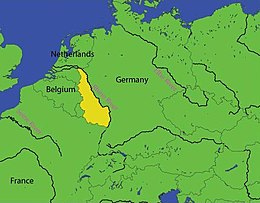

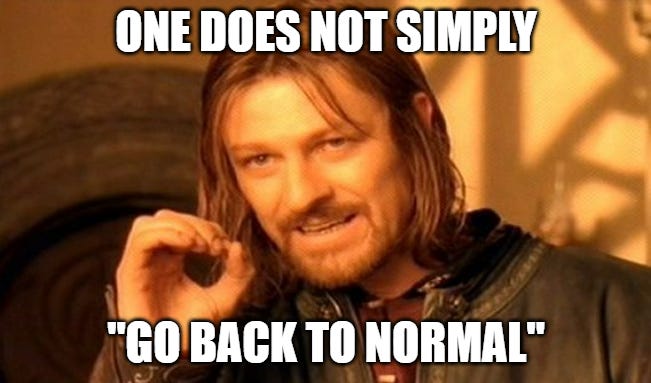

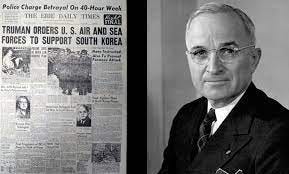






Perhaps for a different theoretical framework, you could look at dynamic systems theory, guided by Heroclitus’ adage, “No man ever steps into the same river twice…”.
Re: the Munich Agreement and the "policy of appeasement." Chamberlain had little choice because England had built up its naval and air forces after WW1, but left its army wholly unprepared to assist France in fulfilling its defense pact with Czechoslovakia. Chamberlain remarked to Daladier, the French PM, that Britain "had no army which could march to Czechoslovakia" (ref below). Without Britain's help, France would not go to war against Germany. Hitler's strategy was to announce his plans in advance at Nuremberg and test the reaction. Britain issued no public challenge because it could not have backed up such a challenge. Instead Chamberlain rushed to meet Hitler at Berchtesgaden, signaling to Hitler that Britain would not go to war over Czechoslovakia. Hitler had snuck a peek at Britain's hand and so had the upper hand in negotiations two weeks later at Munich.
Gilbert, M. (1998). A History of the Twentieth Century, Volume Two: 1933-1951, pp. 196-202.